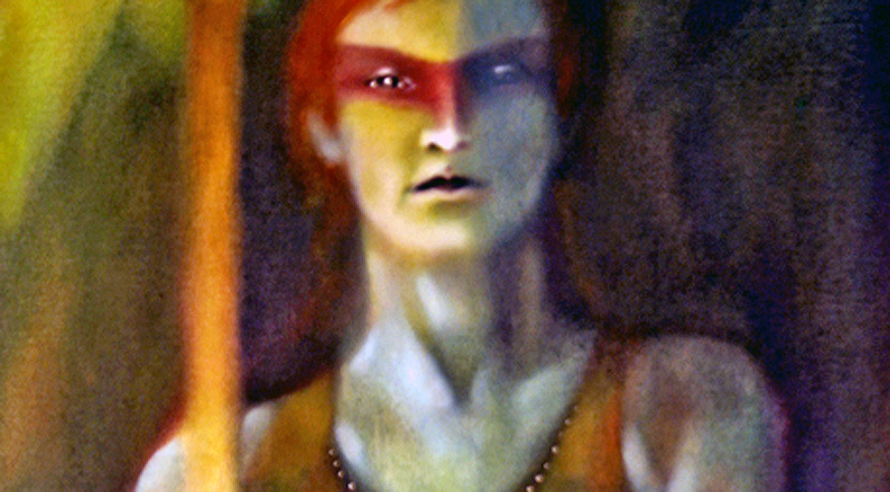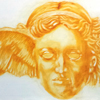
Hecate
Hecate: Queen of Shadows
Hecate, oil on canvas, 2010

Hecate, the ancient Greek Goddess of magic, witchcraft, and the more mysterious aspects of herb lore. It is because of these qualities that she holds a significant place in mythology. Her presence is traditionally heralded by the barking of dogs or the howling of wolves, which are animals symbolically linked to her.
As the Goddess of the Crossroads, Hecate serves as a gatekeeper between our world and the spirit realm. These crossroads are places where magic practitioners traditionally make pacts and engage with otherworldly entities. Her role resonates with that of Papa Legba from the Vodou pantheon, who is also associated with entrances and is symbolized by a dog. Similarly, Maître Carrefour, the master of the crossroads and patron of sorcery in the same pantheon, shares this connection.
There might be an interesting link between Maître Carrefour and the fictional Carfax Abbey, the English residence of Dracula. The name “Carfax” is derived from the French word “carrefour,” meaning crossroads. Additionally, Dracula’s reference to the “children of the night,” which werewolves, further ties him to these themes of crossroads and transformation.
Hecate’s torch is emblematic of the kundalini fire—often described as a serpent of energy—that activates the energy centres within the human body, facilitating communication with otherworldly forces. Her mask conceals her true identity, embodying a sense of mystery and the unknown.
The nature of our encounter with Hecate is deeply influenced by our level of preparation. How thoroughly we ready ourselves determines the quality and character of our interactions with her energies.
She is featured in the Gallery of Greek Mythology

Leave a comment